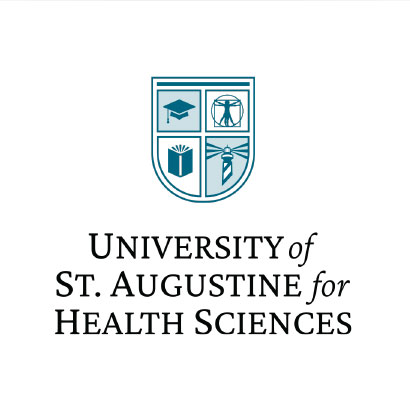

Whether you’re currently working as a healthcare administrator or you’re studying to become one—in a Master of Health Administration (MHA) or related graduate degree program—it’s essential to connect with your peers. Joining a professional association for health administrators and healthcare managers will keep you current with trends in the field and give you access to networking, information-sharing, and educational opportunities. Each organization charges annual membership dues—but think of those as an investment in your career. Here are eight top national associations to consider, each with a different area of focus. See which one might be the best fit for you.
1. Executives
American College of Healthcare Executives (ACHE)
For more than 85 years, ACHE has been focused on advancing leaders in the field of healthcare management. Members are automatically enrolled in one of the 77 regional chapters, which offer education programs, career advancement resources, and volunteer opportunities to get more involved as a healthcare leader in the local community. ACHE produces the annual Congress on Healthcare Leadership, where more than 4,000 participants gather to hear about groundbreaking research, policy updates, and innovations presented by their peers. This national organization is also among the largest publishers of books and journals on health services management, including textbooks and the magazine Healthcare Executive. ACHE is committed to educating, engaging, and inspiring its members as they lead within hospitals, healthcare organizations, and health systems.
USAHS has recently launched our own student chapter of ACHE: the Healthcare Executive Student Society (HESS).
Student-led with guidance by a faculty mentor, HESS-USA promotes opportunities for students to develop and practice leadership skills in academic, healthcare, and community settings. We plan to send one member per year to the Congress on Healthcare Leadership.
2. Financial managers
The American Association of Healthcare Administrative Management (AAHAM)
Founded in 1968, AAHAM provides information, education, and advocacy for healthcare professionals involved in the revenue cycle, including medical records and billing. This professional association hosts an annual conference and administers certification exams in the areas of executive leadership, revenue management, and compliance. Through AAHAM’s more than 30 local chapters, members have the chance to network with others in their area and discuss local challenges and resources. AAHAM publishes the quarterly Journal of Healthcare Administrative Management, as well as Legislative Currents, an online journal about legislative issues affecting healthcare revenue management. It also manages an online job bank and membership directory. Members become eligible for certifications, get invited to special events, and can benefit from AAHAM’s scholarship and awards program.
3. Information managers
American Health Information Management Association (AHIMA)
With more than 103,000 members and credential holders, AHIMA is the premier national association of health information management (HIM) professionals. AHIMA advocates for the HIM profession, serves as a thought leader in the world of health informatics, and has led the development of information governance principles within healthcare. AHIMA’s training seminars and summits are a resource for current information and training in coding, privacy, security, data analytics, and documentation. Member benefits include earning AHIMA credentials, attending association events, and networking with other HIM professionals.
4. Finance and operations professionals
The Healthcare Financial Management Association (HFMA)
HFMA is a professional association for finance, informatics, and operations professionals working in hospitals, insurance companies, physician practices, and other healthcare settings. Members gain access to conferences, seminars, eLearning courses, certification opportunities, and more. Full-time faculty and students are eligible for Academic memberships, which provide access to the same resources that Professional memberships offers—but at discounted prices. HFMA helps its community of 43,000 professionals understand and influence industry changes.
Professional certifications include the Certified Revenue Cycle Representative and the Certified Specialist in Business Intelligence. USAHS has partnered with HFMA to bring these certification opportunities to our students. The Certified Revenue Cycle Representative (CRCR) is available for all students in our Master of Health Administration program, while the Certified Specialist in Business Intelligence (CSBI) is available for students in the Business Intelligence specialization.
5. Black healthcare executives
National Association of Health Services Executives (NAHSE)
The National Association of Health Services Executives (NAHSE) is a nonprofit association of Black healthcare executives founded in 1968 to promote the advancement and development of Black healthcare leaders and to elevate the quality of healthcare services rendered to diverse and underserved communities. NAHSE members are executives from over 45 states who represent more than 500 companies, including ~10 of the largest U.S. health systems.
NAHSE hosts an annual conference, as well as professional programs/workshops, educational programs, a job bank, and a mentoring program. It offers scholarships and fellowship opportunities and participates in health advocacy on behalf of diverse populations.
6. Patient access professionals
The National Association of Healthcare Access Management (NAHAM)
NAHAM is the association for patient access professionals, with a job board, a quarterly journal, education with certification options, and webinars that keep members current on technology and news in the field. At NAHAM’s Annual Conference and through its Access Forum and listserv, members can network and exchange ideas with their peers from diverse settings across the country. They can take advantage of NAHAM AccessKeys®, a tool that helps professionals monitor their healthcare organization’s performance across six patient access domains. NAHAM Toolkits are helpful resources about topics such as patient experience, patient identity integrity, and more.
7. Executive assistants
Association for Healthcare Administrative Professionals (AHCAP)
AHCAP is a professional organization for executive assistants, administrative assistants, and other staff members who support our nation’s healthcare leaders. Its vision is for administrative professionals to be recognized as leaders who support and strengthen the delivery of healthcare. AHCAP advances the professional development of health administrators through conferences, education, advocacy, and networking.
8. Insurance professionals
Health Care Administrators Association (HCAA)
HCAA’s mission is to support third-party administrators (TPAs) and the self-funded health insurance industry through state and federal lobbying efforts. It supports the education, networking, and advocacy needs of TPAs, stop-loss insurance carriers, managing general underwriters, audit firms, pharmacy benefit managers, brokers/agents, human resource managers, plan sponsors, and related professionals. HCAA holds two conferences each year: the Executive Forum and the TPA Summit.








